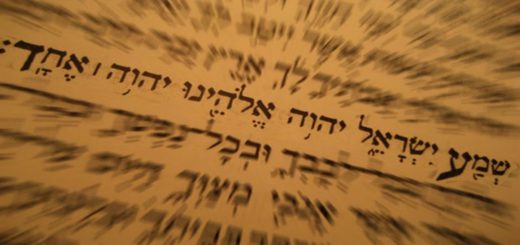The story of Ruth and Naomi, an example of love blessed by the Scriptures
Biblical reflections* published on the site Would Jesus Discriminate? (United States), freely translated by Silvia Lanzi
The same Jewish word that is used in Genesis 2:24 to describe what Adam felt for Eva (and that hopes the spouses feel for each other) is used in Ruth 1:14 to describe what Ruth felt for Noemi. Their feelings were celebrated, not condemned.
During the Christian history Ruth's vote in Noemi was used to illustrate the nature of the marriage pact. These words are often read to Christian wedding ceremonies and are used in sermons to illustrate the ideal love that the spouses should try for each other. The fact that, originally, these words have been said by a woman to another woman tells us a lot about what God thinks about homosexual relationships.
In the entire Bible there are only two books with the name of a woman. One is Ester, who tells the story of a Jewish that becomes queen of Persia and who saves her people from destruction by "coming out" as a Jew with her husband, the king. The other is Ruth, who tells the story of two women who love each other and help each other in difficult times. Both books contain powerful messages for gays, lesbians and bisexual people, but it is the story of Ruth who aims to the question we have raised in chapter one: two people of the same sex can live a committed and loving relationship with the blessing of God?
At the beginning of Ruth's book, Noemi and her husband Elimelech present themselves. They are from Bethlehem, where a terrible famine made it impossible to find food. So they took their two children and went to Moab, a foreign land where they believed they could survive. Unfortunately, Elimelech dies shortly after the arrival in Moab. Several years and the children of Noemi marry Ruth and Orpa, two women from the surrounding area. But before they can have children, his children also die. Noemi, Ruth and Orpa are left without husbands or children.
To fully understand the impact of these events, we need to fall into the mentality of the time. When this story was written, women had only two acceptable places in society: they could be daughters in the father's house or wives in the husband's house. A woman without man did not have a social position. There are several stories of the Old Testament of widows almost starving because they had nobody who took care of them. The constant biblical commandment of "dealing with widows and orphans" stems from the awareness that the widows were among the most vulnerable people in society.
This context makes the subsequent scene almost incredible. Noemi is in mourning and, recognizing his state of widow, he decides to return to Bethlehem where there is his father's family and where he hopes to find food. He recommends his daughter -in -law to do the same - to return from their families. He knows he cannot offer them any help as a woman and fears that she will be just a weight. Orpa reasonably returns home.
But Ruth cannot bear to do it. His feelings come too deep. The Jewish word used in Ruth 1:14 to describe his feelings is quite eloquent. The text says "Ruth joined [Noemi]". The Jewish word for "join" is"Dabaq". This is precisely the same Jewish word used in Genesis 2:24 to describe what Adam felt towards Eva.
You will probably remember the story of Adam and Eva as it is narrated in Genesis 2. After God creates Adam, he is terribly only. None of the animals that God has created - magnificent as they are - is able to satisfy the profound need for Adam's company. So God makes Adam deeply falling asleep, takes a rib from his side and creates Eva. When Eva is presented in Adam, he exclaims: "This time it is bones of my bones and meat of my meat ...!" Finally Adam has found a human company.
The next verse of the text therefore marks an important theological conclusion from the experience of Adam. It is said that for this reason (i.e. the need for company) the man will leave his father and mother when he grew up and yes "Unite" ("Dabaq") To his wife (Genesis 2:24). And, of course, for the vast majority of human beings, because it is God's will for them - that a man and a woman leave their parents' house and form one relationship with each other so close and intimate, that They can be described as "united" to each other.
But, and for those people who are not heterosexual? Is it possible for them, with the blessing of God, to form this type of intimate relationship with someone of one's sex?
The Holy Spirit definitively answers this question in Ruth 1:14. Here the scriptures say - without apologies, embarrassments or reservations - that Ruth had the same feelings towards Noemi that the spouses are supposed to feel mutually. Far from being condemned, Ruth's feelings are celebrated.
In fact, to remove any doubts about the feelings that Ruth felt for Noemi, the Scriptures continue by recording the details of the vote that Ruth made to Noemi. Here is his words:
“Don't insist with me because you abandon you and come back without you; Because where you will go I will go too; where you will stop I will stop; Your people will be my people and your God will be my God; Where you die, I will die too and I will be buried there. The Lord punish me as he wants, if another thing that death will separate me from you " (Ruth 1: 16-17).
When Ruth said these moving words, "Where you will die, I will die too and I will be buried there", was not talking about a theoretical and distant future. He was giving voice to the very real possibility that his decision to put his life in the hands of another woman could cause death. The most sensible thing would have been to allow Noemi to return to his family and to return to his own. But Ruth did not do the most sensible thing. He threw prudence to the wind, went against every survival instinct. Only one word could explain his actions - love.
After this speech, made in the first chapter, the story continues narrating the life of Ruth and Noemi together. The center is the quality of their relationship. The biblical narrator tells of how Ruth has taken care of Noemi doing the only job available to a woman without husband, the gleanner. When the author tells of a possible wedding by Ruth with a much older man, marriage is presented as convenience in order to help Ruth and Noemi survive the harsh conditions of the widowed. No mention of Ruth's love is made for her husband. And, when Ruth finally has a child from his marriage, the text focuses on Noemi and his reaction to the great news, not on his father. In fact, the women of the village (and the author) completely ignore the father, saying, "A son was born in Noemi!" (Ruth 4:17). They remember that Ruth "He loves you, and who is worth more than seven children" for you " (Ruth 4:15). It seems that everyone understands that, for Ruth and Noemi, the most important relationship was the one they shared.
Here is the story that tells the Bible: Ruth's feelings towards Noemi were those of Adam for Eva; She left everything to be able to be with Noemi; He put his life at risk, to be able to take care of Noemi; And, even after marrying a man, his most important relationship was the one he shared with Noemi. If we put aside our preconceptions on what is possible in the Bible, Ruth's book reads as the story of two women in love.
Instinctively, and perhaps involuntarily, Christians have recognized the validity of this interpretation over the centuries. The vote that Ruth made to Noemi (cited above) has been read for centuries to Christian weddings because it captures the essence of the love that should be among the spouses. It is not inconsistent to use these words to define and celebrate spousal love, but then categorically they insist on the fact that those who originally said they did not love spousal love.
In the first edition of her book Our Tribe La Reverenda Nancy Wilson, she herself lesbian, tells of a time when she starred in a theatrical work that included the story of Ruth and Noemi: “After the first or second performance, a young heterosexual couple came to me shyly, telling me how much they loved the play, especially the part on Ruth and Noemi - which I had then explained in the debate with the public. He had liked the passage of Ruth's book so much that they wanted my permit to use it at their wedding! I was so moved that I almost laughed, but, seriously quite seriously gave them permission, but only if they could somehow indicate that these words, originally, had been said by a woman to another woman. They were joyfully agreed with my 'terms', they thanked me and left. [Now] I imagine to stop those poor heterosexuals unaware of their wedding with "Stop, in the name of Ruth and Noemi ...! Stop to steal our stories by making our relationships illegal or characterizing them as immoral! "
This is precisely what many have done in the Church, harshly condemning all the women who have the courage to share the same vote that Ruth made to Noemi. But, how can it be wrong for two women doing these votes, when we have the biblical example of Ruth and Noemi who do exactly the same?
Some might object saying “But the Bible does not come out into the open and does not say that Ruth and Noemi were lovers. It is good for women to live together and take care of each other ... and nothing else ". It seems that these people think that the main difference between modern lesbian relationships (which condemn) and the biblical report of Ruth and Noemi (who accept) whether the Bible does not explicitly mention that between the two there was no physical intimacy. But let's question this notion. Whether there has been physical intimacy between Ruth and Noemi and Noemi, we believe that it is the only idea of two women who live in a loving alliance relationship to which many Christians object.
Imagine a conservative telepretant who gives advice to two women from his congregation. Women tell him “We want to live together and commit our mutual love in the sign of God and this congregation. They want our ecclesiastical family to celebrate our relationship. And, for the words of our votes, we want to use Ruth 1: 16-17. "
He says “I can't afford it. Our Church is against homosexuality ".
"Oh," women say, “Okay, we will remain unscrewed. Think like a 'Bostonian marriage' " [that is, two lively women without the financial support of a man NDC].
Believing that the teleprets goes, “Well, in this case we plan a date! How about five of June? " Of course not! The same idea that two women could make these votes mutually is socially repugnant for him. His prejudices tell him that this type of love between people of the same sex is "disgusting". But the Bible is in direct opposition with the invalidation of the telepretant.
The Bible is clear. Here we have two women who make votes, live together for life, love each other deeply, adopt their respective families enlarged as if they were their own and make mutual relying on their livelihood - as many lesbians do today. Instead of condemning these relationships, the Bible celebrates them, reserving them for an entire book of writing.
* The biblical passages are taken from the Jerusalem Bible/CEI.
Original text: Ruth Loved Naomi As Adam Loved Eve






